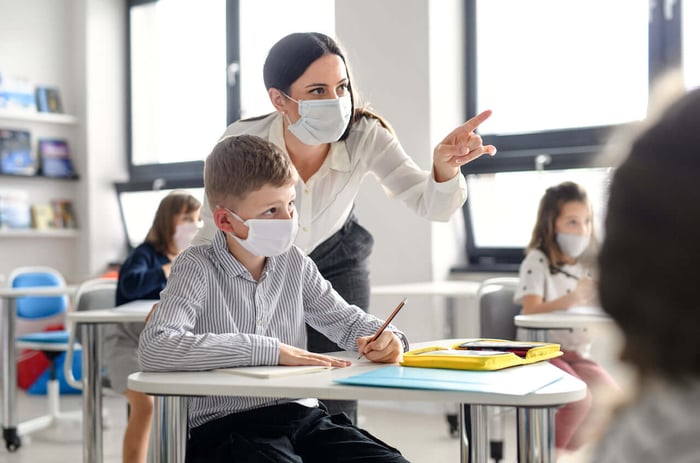
The COVID pandemic has changed our lives in seemingly endless, many times horrible ways. Unfortunately, this doesn’t only refer to our physical health.
Suicide rates during COVID have spiked, in part due to the isolation and various new stressors put on us in this pandemic. Learn more about this global tragedy and how you may be able to help here.
Covid Suicide Rates: Why?
In a survey conducted by the CDC in June of 2020 showed that adults across the board are reporting highly elevated negative mental health conditions that are associated with the COVID pandemic.
This is especially high in groups that bear the burden of front line labor and shutdown-caused poverty such as essential workers, unpaid caregivers, minorities, and younger adults.
These issues were broken down into the following upsetting statistics:
- 31% reported an increase in depression or anxiety symptoms
- 26% reported an increase in trauma/stress disorder related symptoms
- 13% reported an increase or a start of substance use and abuse
- 11% reported serious consideration of suicide
Even more upsetting, adults experiencing new/recent symptoms of mental illness increased by 5% between August of 2020 and February of 2021 with the highest increase being between 18-29 years old.
11% of those surveyed stating their mental health needs and treatment were not being met, putting them at even more risk of serious symptoms and suicide.
Children are not immune to this new crisis either.
A similar study that began in April 2020 showed that children in age groups 5-11 and 12-17 saw a 24% and 31% increase in mental health visits compared to the same time in 2019. That is a massive number and a horrifying thought that children so young are feeling this level of despair and hopelessness.
What Can Be Done About COVID Suicide Rates?
The most important thing to start off with is understanding. Mental health is swept under the rug a lot globally, and we have to start understanding what could be causing this increase in mental illness to be able to help.
In this case, the causes seem glaringly clear.
It’s been a year of lockdowns, layoffs, and death on a scale unseen in many of our lifetimes. People have lost livelihoods, homes, family members, friends, all while being unable to even be in the same room as them. There is no closure and no easy way to cope, especially not when it’s still ongoing.
For younger children, this is added to by the stress that they’re watching their families go through. A toddler may not understand the concept of unemployment, bills, medical care, or funeral costs, but they do understand sadness. Imagine how helpless they feel watching the adults around them fret?
For teens and young adults, imagine the fear that they’re watching the world they knew change forever in front of their eyes and worrying about having a future at all.
For the poor, imagine them wondering if they could even afford treatment or if they’re surrounded by a death sentence.
Empathy. Empathy is the start to how we help. Uplifting each other, being there for each other as much as possible. Reminding each other that we’re not alone in this. Everyone in the world is suffering from the same exact fear and the same exact disease.
On a personal level, you can keep yourself more clear-headed by allowing yourself to tune out from doom - scrolling through upsetting news and social media posts. Connect with the people you love. Have ZOOM chats, phone calls, play games with each other on line, and try to avoid relying on substances as a pastime. Find something that calms you and hold onto that.
Do Not Be Ashamed to Get Help
Suicide rates during COVID are already high. They do not need to be higher. They shouldn’t be this high in the first place.
If you’re having thoughts of self harm or suicide please seek professional help immediately. The following are just a few examples of the resources available for you and your loved ones:
National Suicide Prevention Lifeline: 1-800-273-TALK (8255) for English, 1-888-628-9454 for Spanish
Lifeline Crisis Chat for those that have issues speaking verbally
The Veterans Crisis Line for veterans that may have COVID adding to existing trauma or stress related mental issues
Many more resources are available in PDF format courtesy of the CDC and can be found at the end of this link here
And remember: It’s okay to not be okay.



